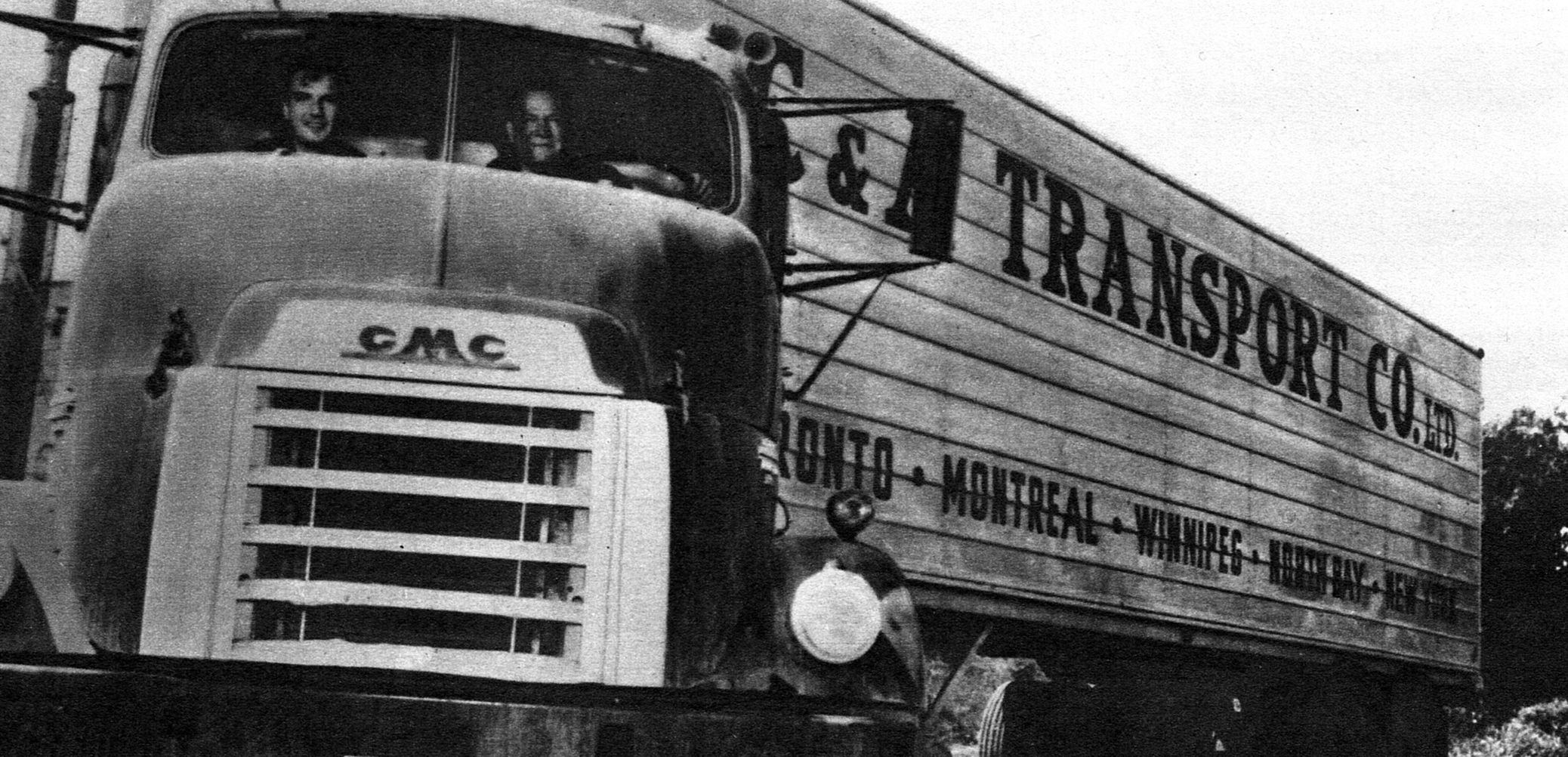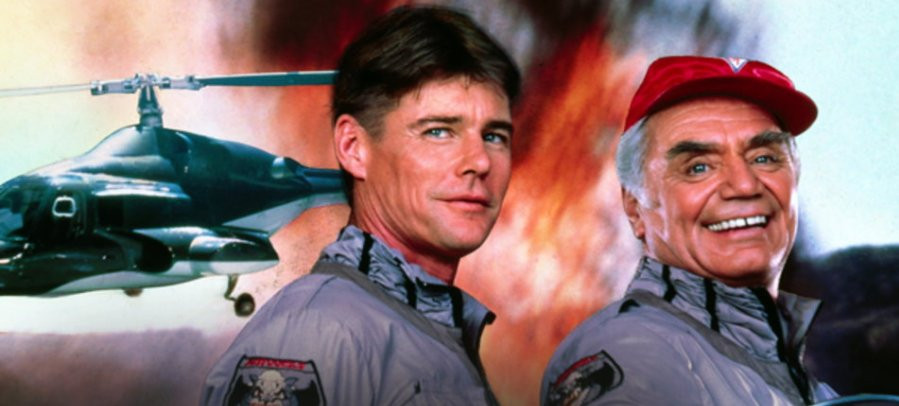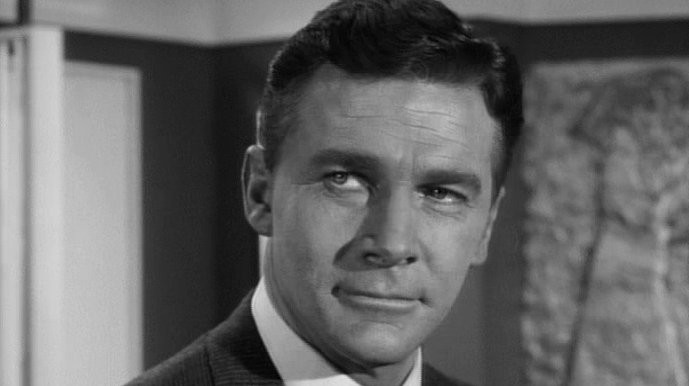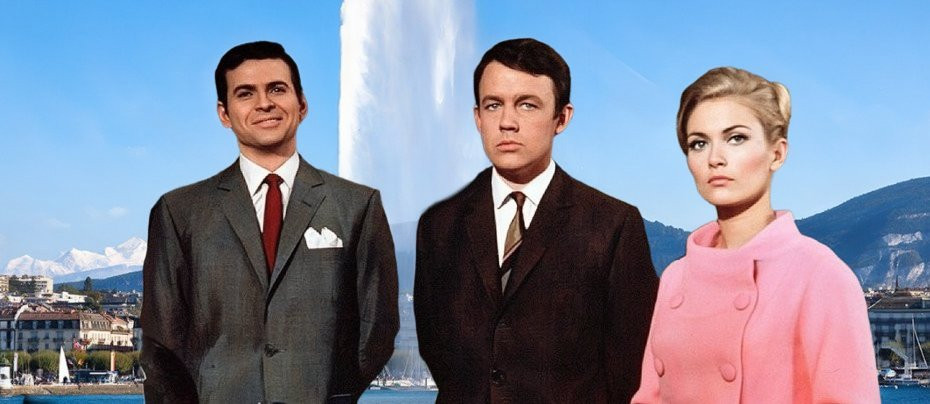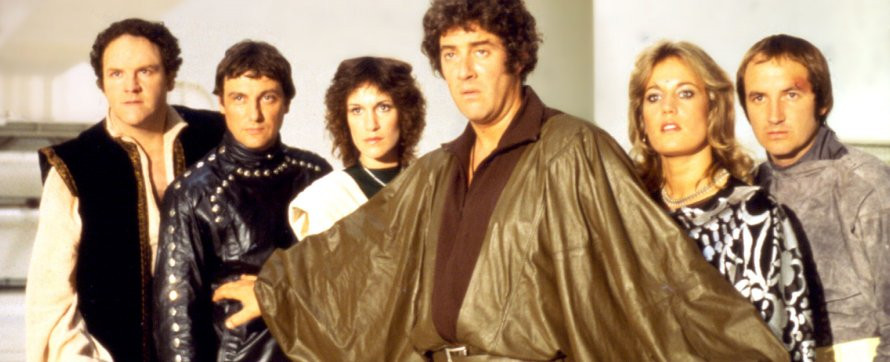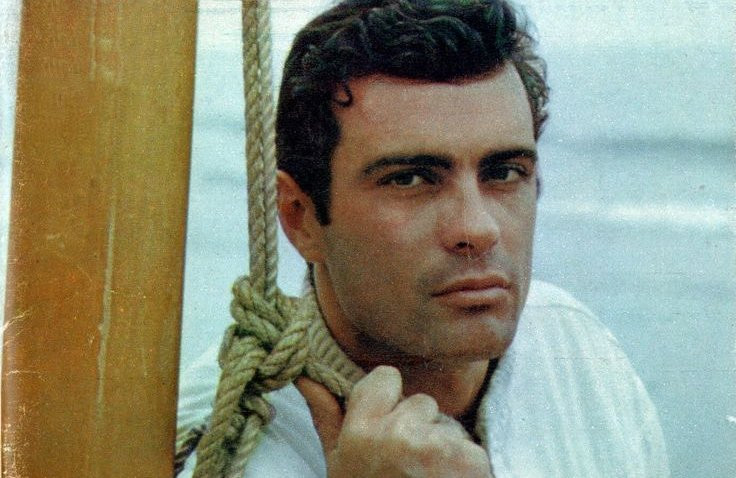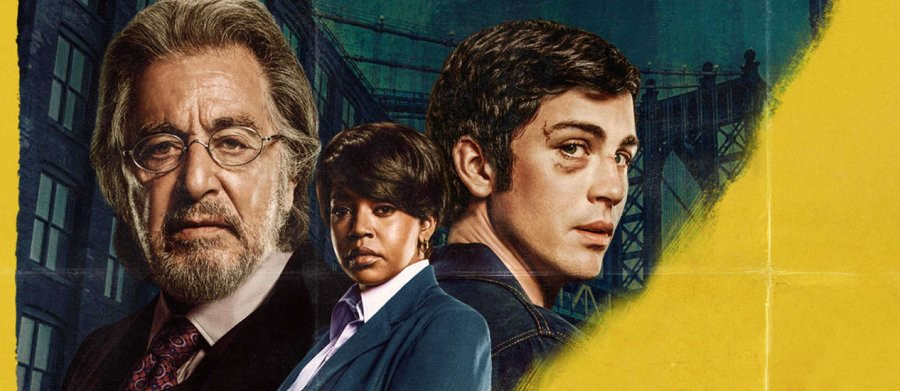
Hunters and the Holocaust: The Ethics of Entertainment
Hunters and the Holocaust: The Ethics of Entertainment
A Personal View
By John Winterson Richards
Amazon's recent 10-part action adventure drama Hunters divided opinion. Even some of those who enjoyed the slick production, the quality cast, and the perceptive evocation of the 1970s felt uncomfortable at the journey into the Nazi Death Camps themselves as part of a revenge caper.
In this short essay, I will argue that while it is perhaps unfair to accuse Hunters of "trivialising the Holocaust," it may be guilty of a far more serious offence of - unintentionally - giving aid and comfort to "Holocaust denial" in its irresponsible confusion of fiction with fact.
Before I start, forgive me my own "snowflake" moment while I explain something about my language here: I prefer to use the word Shoah, from the Hebrew for "catastrophe," rather than the more familiar Holocaust, meaning "burnt offering," which has obvious unpleasant connotations in this context.
Also note that some spoilers follow.
The show follows the exploits of a fictional band of Nazi hunters based in New York in 1977. Unlike the likes of Simon Weisenthal - who is portrayed in a dignified cameo by Judd Hirsch - our heroes have no intention of bringing the Nazis to account, and exposing their crimes, in open court. They just kill them.
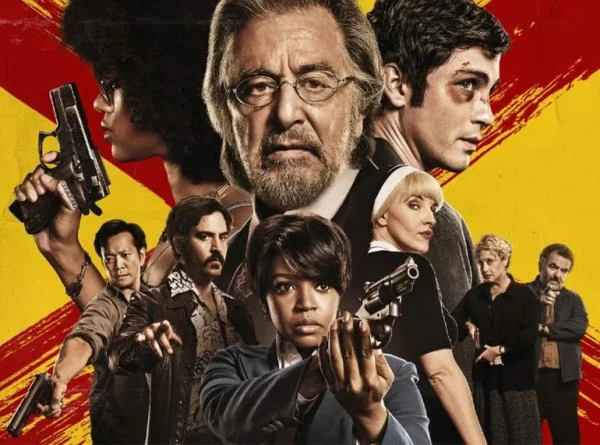
Whatever one's views of the ethics of this - a potentially interesting issue given only cursory consideration by the script - it would probably not attract much outrage in itself. After all, like them or not, such revenge plots are a staple of popular entertainment, and no one has much sympathy for Nazis, except perhaps other Nazis.
The real objections were triggered by "flashback" scenes set in Auschwitz itself. It cannot be denied that they struck a false note. They were bound to be unrealistic. Nothing can really convey the horror of those places. My father visited Belsen during his National Service with the British Army in Germany ten years after that Camp was liberated and he never forgot how it still stank of death.
One simply cannot convey that on film. Yet, even if one could, there is what one can only be described as a distasteful intrusion in the attempt, like pretending that one can feel what someone else experiences at the very point of death. It is not something the rest of us are meant to do. This is why many people felt uncomfortable at the expertly reconstructed final scenes of the feature film 'United 93.' Such suffering is too personal, too intimate, too intense for anyone else.
So the Camp scenes in 'Hunters' are certainly at the very least badly misjudged, but it is a big leap to go from there to arguing that the production as a whole trivialises the Shoah.
The argument that serious events should not be used "for entertainment" can be dismissed very easily. The dramatic forms of both tragedy and comedy exist precisely because of, and for, serious events. They are both processes by which emotions evoked by serious events which might otherwise might be unbearable become at least a bit more bearable.
Tragedy is, by definition, all about tragedies. Aristotle, in his famous 'Poetics,' arguably the first proper book of literary theory, demonstrates how a well-constructed tragic drama enables the audience to achieve 'catharsis" or purgation. This form of emotional release is psychologically very healthy.
Comedy performs a similar function in another way. It enables us to cope with what frightens or horrifies us by mocking it and thereby diminishing it. This is why mocking authority is healthy good humour while mocking the weak and helpless is not. It seems there was a lot of grim humour among the Camp inmates themselves. There is a lot of truth in the old line that sometimes you have to laugh or you would cry.
The first great comic writer, Aristophanes, did not hesitate to put references to very serious current events in his plays. Arguably his best play, 'Lysistrata,' about a fictional women's "sex strike" to stop the devastating Peloponnesian War between Athens and Sparta, was performed on a public stage in Athens while the War was still going on. There were no cries of "Too soon, too soon" in Classical Greece.
The same audiences who enjoyed Aristophanes' comedies would also have understood that the references to the Trojan War in the tragedies of his near-contemporary Euripides were really also about the ongoing Peloponnesian War. Practically every person in those audiences would have lost someone to the War, but, far from considering that the plays "trivialised" their loss, they felt that they reflected their own grief.
The Ancient Greeks understood these things, and since then, much of the most successful theatre - and later cinema and television - has been successful precisely because it highlighted important contemporary issues.
It was at the same time "entertainment." It used the medium of storytelling to draw the attention of more people, and to make a bigger emotional impact on those people, than if the issues had simply been addressed in lectures or books. Given a choice between conveying the same message or the same facts in an entertaining way or a dull way, it is only right to use the method by which they are most likely to be absorbed, even if - no, especially if - that message or those facts are important.
No facts are more important than those about the Shoah. In many ways, it is the defining moment of recent history. Its message is that all the advanced technology of our modern civilisation does not mean that our basic animal nature has changed. On the contrary, all that advanced technology has given the dark side of that nature more efficient tools to serve its desires. We need to be more on guard than ever.
This is a message that cannot be repeated too often.
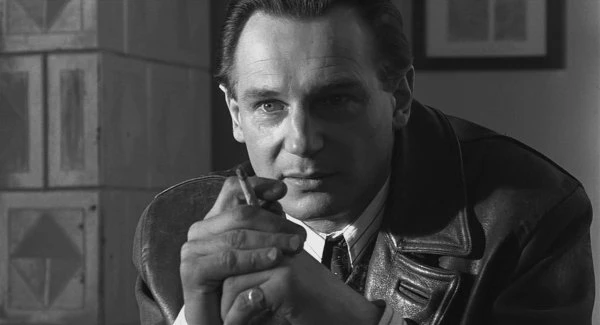
The cinema has often been praised for repeating it, most obviously in highly regarded films like 'The Pawnbroker,''Shoah,' and, of course, 'Schindler's List.' It is also to be found in less prestigious films like 'Marathon Man' and 'The Boys From Brazil.' It is interesting to note those two films came out either side of the year in which Hunters is set and it obviously referenced them. While it cannot be denied that these films were exploiting the Shoah, or at least the Nazis, for entertainment purposes, they attracted very little criticism for that, because they were repeating the message for a mass audience, including those who might not read too many books or watch too many documentaries: "the Nazis were really bad, and they are still out there."
Yet the usual snobbery, which is prepared to give the cinema - and the theatre and literature - due credit for performing this important function, frowns on television when it does the same. It is in any case the norm that what is seen as art in more respectable media is seen as vulgar on "the box."
Whatever one's criticism of modern television, its record is in fact an honourable one when it comes to keeping the evil and the lessons of the Shoah at the forefront of popular culture. The 2015 drama 'The Eichmann Show' demonstrated how it was the television trial of Adolf Eichmann in Israel that awoke a new generation to what actually happened.
Before that, there was a definite feeling among the previous generation, not least among many of the survivors themselves, that the whole thing had been so incredibly horrific that they did not want to think about it and would rather just get on with rebuilding their lives. This was "Holocaust denial" not in the sense of denying the facts - they knew the facts were facts because they had experienced them - but in the sense of psychological denial.
It does indeed seem to be the case that there were relatively few references to the Shoah, or indeed to the Nazis in general, in 1950s television. This was less to do with political suppression than with old fashioned but understandable notions of good taste.
That changed after the Eichmann Trial. The Nazis were back - as the perfect television villains. They pop up all over the place in the 1960s and 1970s, from Star Trek to The New Avengers. Mainstream entertainment did, however, steer clear of direct depictions of the Shoah itself - for obvious reasons.
Yet it was not ignored. The twentieth episode of the definitive documentary The World At War, titled "Genocide: 1941-1945," pulled no punches and made a powerful impression on all who saw it.
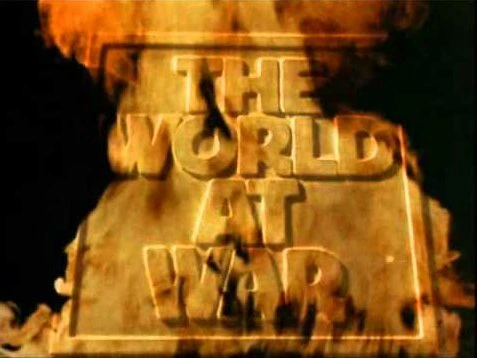
This does not alter the fact that even the best, most prestigious documentary is going to be seen by less people than a successful dramatisation. In many ways the dramatisation can also have a greater emotional impact because the form of a story is more memorable than even the best presentation of facts and the audience is more involved if it can identify with specific characters.
It was in 1978, the year after the one in which the first season of Hunters is set, that American network television finally made its first, and still most serious, attempt at a major dramatisation of what really cannot be dramatised. It was titled simply Holocaust.

There is indeed much that is sanitised about the whole thing. Hollywood may be obsessed with thinness, but there is no comparison between even the most slender actors or actresses and the total emaciation of the survivors in films shot immediately after the liberation of the Camps. Those films are the proof of the wisdom of General Eisenhower in ordering the cameras in as soon as possible. It would not have been possible to believe, unless one had seen it with one's own eyes, that human beings could survive in such conditions.
Quite apart from that, Holocaust was as much "soap opera" as history, true to the format and style of the "miniseries" of the time. The plot is constructed to enhance dramatic effect . Characters are fairly one-dimensional. The cast is distinguished, but most of them are visibly acting. While it still has considerable emotional impact, the artifice of the whole thing is all too obvious for much of its running time.
It is therefore not surprising that there was enormous criticism of Holocaust, led by Camp survivor and future Nobel Laureate Elie Wiesel. It is interesting to note that the grounds of that criticism were almost identical to some of the recent criticism of Hunters. Sometimes the wording is so similar that one could take the names out, swap them around, and not tell afterwards which protest was written against which production.
Of course, there is an enormous difference in that Holocaust was intended as a very serious attempt to educate through entertainment, while Hunters was pure, tongue-in-cheek escapist entertainment, no more. Yet that implies that each should be judged by its own criteria.
There is no doubt that, pace Elie Wiesel, Holocaustsucceeded in its intention of alerting a new generation to the full horrors of the Shoah. It generated particularly heated debate when it was shown in Germany, where many people were unaware of the full facts.
While it might, in many respects, seem slightly risible if viewed today, Holocaust made a great impact in its day, and, more than any book or documentary, brought the Shoah into the cultural mainstream. It was probably the most influential evocation of what happened until Steven Spielberg made 'Schindler's List' - which was, in some ways, a response to it, a successful attempt to make some of the same important points but without the soapy style.
It still does nothing to undermine Spielberg's great achievement to point out that television got there first, and if television pulled its punches, then so did 'Schindler's List' in some respects. It is possibly beyond all imagination to recreate the full horror and perhaps better not to try.
It would certainly have been better for Huntersnot to try. Its representation of the Camps falls far below the standard of previous dramatisations, let alone the reality. It could be argued, in defence of Hunters, that it is not intended to be the reality. Instead we are offered a stylised version, just as the main story offers a stylised version of the 1970s.
In this stylised version of the Camps, the industrial mass slaughter becomes a series of exquisite psychological tortures of the inmates. The most elaborate of these is a human chess game in which inmates play the parts of pieces and are killed as they are taken.
This is indeed very distasteful - but worse than that, it is inaccurate. The whole point of the Extermination Camps, unlike the original Concentration Camps, where there was a hope of survival, was that everyone there was there to be killed. They might be worked to death, or almost to death, but either way the ultimate intention was that they would all die. Everyone. That is the true horror of the Extermination Camps like Auschwitz.
To that end they used all the fruits of modern technology and management science to run a factory system dedicated to killing human beings as efficiently as possible. Some might be spared - temporarily - for work, or for ghastly "medical" experiments, but only in the context of a plan that would leave no witnesses.
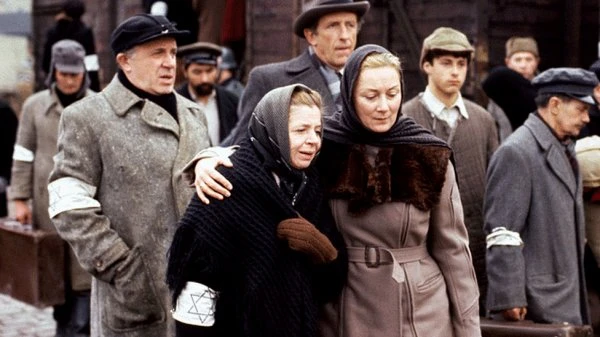
To this end, human beings were reduced to numbers. They ceased to be human beings in the eyes of those who killed them. So the idea of playing with them was contrary to what the whole system was supposed to do. Even if individual guards had the inclination, as some did, they would not have had the time or the resources to waste. The priority was simply to kill.
The human chess game where the human pieces are killed as they are taken is a fiction. It is found in novels, most memorably in one of Dorothy Dunnett's 'Lymond Chronicles.' I have not been able to find a definite case where it happened in history.
It certainly did not happen in the Extermination Camps. More to the point, it could not have happened in the Extermination Camps. To imply that resources would be diverted towards such an extravagance would be to distract from their true evil, which is the way they first dehumanised their victims in order to make killing them easier.
Does this matter? After all, it is obvious that what the Nazis did was evil, so why should it make any difference to portray them committing one sort of evil rather than another?
It matters a lot, and for two important reasons. The first is that it is the standard operating procedure of the more recent, deliberate and politically motivated form of "Holocaust denial" to look for minor inaccuracies in descriptions of the Shoah. These are then blown out of proportion and deployed, using a classic logical fallacy, to undermine the credibility of solid facts. It might be a bit of a leap from "the media lied about the human chess game" to "the Holocaust never happened" but only a short step to "the Holocaust is exaggerated." Once doubt is established in the minds of the poorly read, it is easy for the skilled propagandist to lead them further down the road.
The strongest defence against "fake news" is real news. The news media throw away their strongest weapon if they let even the slightest inaccuracy or false impression slip in to what they present to the public. The same is also true of the entertainment media, which are even more influential than the news media in forming public opinion.

People believe what they see on television, even in dramas and comedies which are meant to be fictional. They assume that what they are seeing must be, at least to some extent, based on fact, especially when it is claimed or implied that it is - as was the case, to very different degrees, with both Holocaust and Hunters.
This is why the question of accuracy is one I have raised in a number of my reviews on this website, especially in relation to historical dramas. It is irresponsible to claim that it is just entertainment and it does not matter. Entertainment has a bigger role in most modern lives than reading, research, or following current affairs, and so a bigger impact on attitudes. It is naive or disingenuous to pretend otherwise.
The second reason why such inaccuracy matters is that it undermines one of the most important lessons of the Shoah - all the more important because it is unpalatable.
The notion that the Shoah was the work of a handful of sadists, as implied by Hunters and hundreds of other shows, comforts us, because it offers us the illusion that humanity as a whole - we - are not like that, and if only we can identify and eliminate those few deviants among us all will be well.
The terrifying truth is perhaps one of the greatest horrors of the Shoah. The Camps were just the tip of an iceberg, a vast organisation that relied on the active participation of hundreds of thousands of people - in the police, the railways, administration, industry, and so on. All must have had a fair idea what was going on.
Most of those people were not sadists. All the research conducted into them suggests that they were fairly ordinary. It is impossible to read about them without acknowledging the truth of Hannah Arendt's comment about Eichmann illustrating "the banality of evil."
Post-War psychological experiments like those of Stanley Milgram have since confirmed that most human beings are extremely susceptible to social conformity, especially in response to authority. We all tend to go with the flow.
So perhaps the most important lesson of the Shoah - the closest it has to a positive legacy, if we can even think in those terms - is the clear warning that we ought to be on guard not against the occasional sadist so much as our own herd instinct.
To counter this, we need to learn to question what we are told - not to buy into conspiracy theories but to be able to examine what we read and hear critically. We need to think for ourselves and to stand up for what we believe to be right, even against general opinion and accepted authority when, after careful assessment, we believe they are wrong.
The media have an important role to play in all this - the entertainment media as well as the news media, perhaps more so because they are more influential. They need to be scrupulously accurate. They also need to be open to different points of view.
In its failure to meet those high standards, Hunters is no worse than many other shows that attracted less criticism. Perhaps it is precisely because in many other respects it had the potential to be a good show - asking serious questions about a serious subject - that it deserves to be criticised more.
About writer John Winterson Richards
John Winterson Richards is the author of the 'Xenophobe's Guide to the Welsh' and the 'Bluffer's Guide to Small Business,' both of which have been reprinted more than twenty times in English and translated into several other languages. He was editor of the latest Bluffer's Guide to Management and, as a freelance writer, has had over 500 commissioned articles published.
He is also the author of ‘How to Build Your Own Pyramid: A Practical Guide to Organisational Structures' and co-author of 'The Context of Christ: the History and Politics of Rome and Judea, 100 BC - 33 AD,' as well as the author of several novels under the name Charles Cromwell, all of which can be downloaded from Amazon. John has also written over 50 reviews for Television Heaven.
John's Website can be found at John Winterson Richards
Published on April 15th, 2020. Written by John Winterson Richards for Television Heaven.


